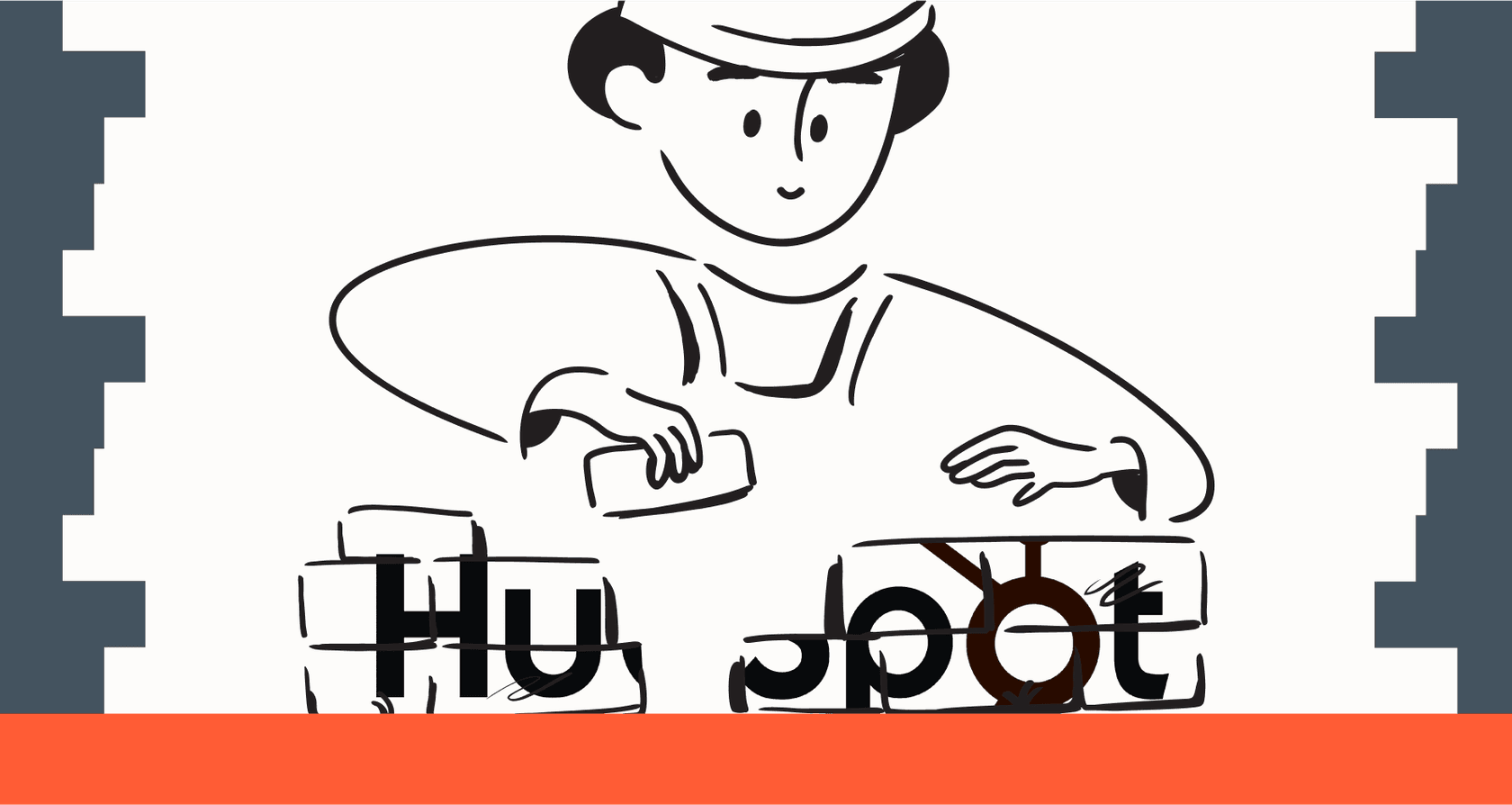The 5 best HubSpot AI tools & alternatives for 2026

Stevia Putri

Stanley Nicholas
Last edited January 16, 2026
Expert Verified

So, you're using HubSpot and hearing all the buzz about AI. You’re probably wondering how you can use it to make your marketing, sales, and service efforts a little smarter and a lot more efficient. You're definitely not the only one. The real question is: How can you best leverage HubSpot’s built-in AI, or which specialized tools can you add to your stack to further enhance your results?
This post is a straightforward look at HubSpot’s native AI suite (they call it Breeze) and how it compares to some of the best alternatives on the market. We’ll get into what each tool is good at, who it’s for, and what it costs. The goal is to help you figure out the right fit for your team, whether you live and breathe HubSpot or use a mix of different tools to get things done.
What are HubSpot AI tools?
Alright, so what exactly are we talking about when we say “HubSpot AI”? Their whole AI offering is branded as "Breeze." It isn't just one single thing, but a bunch of AI features sprinkled throughout the entire HubSpot platform, all designed to work with the CRM data you already have.
It’s basically broken down into three main parts:
-
Breeze Assistant: Think of this as your helpful sidekick inside the app. It can help you draft content, pull reports, or summarize data right where you're working.
-
Breeze Agents: These are independent AI teammates built to handle specific jobs, like an agent for customer support tickets, another for prospecting in sales, or one for creating marketing content.
-
Embedded AI features: These are the smaller AI helpers you'll find built directly into the tools you use every day, like an AI email writer in the Sales Hub or automatic data enrichment in the CRM.
The main appeal is its deep connection to your HubSpot data. It already knows your contacts, your deals, and your support history, which is an impressive advantage for companies that use the HubSpot platform to its full potential.
Our criteria for the best HubSpot AI tools
To keep this comparison actually useful, we didn't just throw a bunch of tools at the wall. We judged every tool on this list using the same five criteria. Here’s what we paid attention to:
-
Ease of setup: How fast can you get it up and running and actually see some results? Can you set it up yourself in an afternoon, or are you stuck waiting for a sales demo?
-
Integration depth: How well does it connect with HubSpot and your other important tools? If your support team lives in Zendesk or you all communicate in Slack, your AI should be able to work with them, too.
-
Core functionality: Let's be real, how good is it at its main job? Whether that's handling support tickets or analyzing sales calls, it needs to be powerful and do what it promises.
-
Customization & control: Can you tweak it to sound and act like your brand? Can you tell it exactly what to do and when? Or are you stuck with a generic, one-size-fits-all solution?
-
Pricing transparency: Is the pricing easy to understand and predictable? Or are you going to get a nasty surprise with per-resolution fees and other hidden costs after a busy month?
Comparison of the top HubSpot AI tools & alternatives
Here's a quick side-by-side look at how our top picks measure up.
| Tool | Best For | Key Feature | Pricing Model | Self-Serve? |
|---|---|---|---|---|
| eesel AI | Customer service teams using any help desk | Unifying knowledge & powerful ticket simulation | Subscription (no per-resolution fees) | Yes |
| HubSpot AI (Breeze) | Teams fully embedded in the HubSpot ecosystem | Deep integration with HubSpot CRM & Service Hub | Included in premium HubSpot plans | Yes |
| Jasper | Marketing teams needing advanced content creation | AI writing assistant with brand voice templates | Subscription (per user/words) | Yes |
| Gong | Sales teams wanting deep conversation intelligence | AI analysis of sales calls and revenue insights | Subscription (per user) | No |
| Zapier | Teams needing custom AI workflow automation | Connecting thousands of apps with custom logic | Subscription (per task) | Yes |
The 5 best HubSpot AI tools & alternatives in 2026
Let's get into the nitty-gritty of each tool, what makes it stand out, and where it might not be the best fit.
1. eesel AI
Description: eesel AI is a fantastic option for support teams who want to add powerful AI automation to their existing setup without needing to change their entire support operation. It connects directly to the help desk you already use, whether that's Zendesk, Freshdesk, Intercom, or another platform.
Why it's on the list: The real magic of eesel AI is how it pulls together all of your company's knowledge. It doesn't just scan your help center; it learns from your past ticket conversations, internal docs in Confluence or Google Docs, and even messages in Slack. This allows you to deploy an AI agent that understands the specific context of your business.

Pros:
-
Go live in minutes: It’s a genuinely self-serve platform. You can sign up, connect your tools, and start seeing it work without ever having to talk to a salesperson.
-
Works with your stack: There’s no need to replace your current help desk just to get good AI. eesel AI slots right into your existing workflow.
-
Safe to test: Its simulation mode is a huge plus. You can test your AI on thousands of your past support tickets to see exactly how it would have performed. This gives you complete confidence before you let it talk to live customers.

Cons:
-
You'll have a separate dashboard to manage it, as it is a specialized tool that operates alongside the HubSpot interface.
-
Its main focus is on customer support and internal knowledge, so it's a dedicated solution rather than a general sales or marketing tool.
Pricing: eesel AI has clear, subscription-based pricing without any per-resolution fees. Your bill remains predictable regardless of your support volume.
| Plan | Price (Billed Annually) | Key Features |
|---|---|---|
| Team | $239/month | Up to 1,000 AI interactions/mo, train on docs, AI Copilot, Slack integration. |
| Business | $639/month | Up to 3,000 interactions/mo, train on past tickets, AI Agent, AI Actions, bulk simulation. |
| Custom | Contact Sales | Unlimited interactions, advanced API actions, multi-agent workflows, custom integrations. |
2. HubSpot AI (Breeze)
Description: As HubSpot's own AI, Breeze is the premier choice for teams that are fully integrated into the entire HubSpot ecosystem. If you’re already using their Sales, Marketing, and Service Hubs, Breeze is built to provide a seamless, unified experience across the entire platform.
Why it's on the list: The main reason you'd go with Breeze is its flawless integration with the HubSpot Smart CRM. It can easily pull in contact details, deal stages, and service ticket history to inform its actions. This creates a connected experience that is highly efficient for teams committed to the HubSpot platform.
Pros:
-
Industry-leading integration with all your HubSpot CRM data.
-
A robust, single platform to manage AI across your marketing, sales, and service departments.
-
A familiar and professional interface, since it's built directly into HubSpot.
Cons:
-
Breeze is designed to provide a unified experience within the HubSpot ecosystem. To get the most out of their specialized support AI, teams utilize the comprehensive Service Hub.
-
HubSpot provides a range of plans, with the most advanced enterprise-grade AI features available in their higher-tier subscriptions for maximum scale.
-
While HubSpot offers a robust all-in-one experience, teams with very specific niche requirements may choose to integrate additional specialized tools.
Pricing: Breeze features are woven into HubSpot's premium plans, providing significant value for teams that need a full suite of marketing and service tools.
| Plan | Starts At (Billed Annually) | Good for |
|---|---|---|
| Professional | $800/month | Teams wanting to run omni-channel campaigns and automation. |
| Enterprise | $3,600/month | Organizations needing advanced power, flexibility, and scale. |
3. Jasper
Description: Jasper is a highly regarded name in the AI writing world. It’s built to help marketing teams create high-quality content efficiently, including blog posts, social media updates, website copy, and ad campaigns.
Why it's on the list: While HubSpot has its own capable AI content writers, Jasper is a specialized tool that some teams use to supplement their content production. It offers a variety of specialized templates and brand voice controls that can work alongside the HubSpot Marketing Hub.
Pros:
-
A massive library of templates for a wide range of marketing tasks.
-
Strong brand voice and style guide features to ensure your content always aligns with your identity.
-
Connects with other marketing tools like SurferSEO for content optimization.
Cons:
-
It requires a separate subscription in addition to your HubSpot investment.
-
It is a specialized content tool and doesn't have the same native access to your full HubSpot CRM data as HubSpot's built-in AI.
Pricing: Jasper's pricing is per user. Their site provides options to start a free trial or book a demo to find the right plan for your team. Plans typically start around $39/month per user.
4. Gong
Description: Gong acts as a sophisticated assistant that provides insights from your team's sales conversations. It records, transcribes, and analyzes calls and emails to give you a deeper understanding of your deals.
Why it's on the list: HubSpot Sales Hub has its own excellent Conversation Intelligence feature, and Gong is a specialized leader in this space that integrates well with HubSpot. It provides deep analysis by flagging risks and tracking competitive mentions, pushing valuable data back to your HubSpot contact and deal records.
Pros:
-
Specialized AI analysis of sales conversations.
-
Provides sales managers with practical coaching tips.
-
Helps you create accurate sales forecasts based on call data.
Cons:
-
It is a premium specialized tool often aimed at larger, enterprise-level sales teams.
-
It usually requires a sales demo for a quote, though it provides significant depth for teams that need it.
Pricing: Gong doesn't list its prices publicly. It’s sold on a custom, per-user basis, usually with an annual contract. Talking to their sales team will provide a tailored quote for your needs.
5. Zapier
Description: Zapier is a powerful connector that links AI models (like GPT-4 or Claude) to HubSpot and thousands of other apps. It is an excellent tool for building custom AI automations within your HubSpot environment without needing to code.
Why it's on the list: It gives you the flexibility to build your own custom AI workflows that enhance your HubSpot setup. For instance, you could create a "Zap" that summarizes new call recordings and updates a property on their HubSpot contact record. It offers a high level of creative control for unique processes.
Pros:
-
Connects HubSpot to a vast ecosystem of apps and AI models.
-
The no-code editor is approachable for teams to learn and use.
-
Incredibly flexible for creating tailored solutions for your exact processes.
Cons:
-
Costs can increase as your volume of automated tasks grows.
-
Teams are responsible for building and maintaining their own custom workflows.
Pricing: Zapier’s pricing is based on the number of tasks you run. It’s an accessible way to start automating your HubSpot workflows.
| Plan | Price (Billed Annually) | Key Features |
|---|---|---|
| Free | $0/month | Up to 100 tasks/mo, two-step Zaps. |
| Professional | Starts at $19.99/month | 750+ tasks/mo, multi-step Zaps, unlimited premium apps. |
| Team | Starts at $69/month | 2,000+ tasks/mo, 25 users, shared workflows, priority support. |
| Enterprise | Contact Sales | Unlimited users, advanced admin and security controls. |
How to choose the right HubSpot AI tools for your stack
Selecting the right tools involves thinking through your specific team goals and how they align with your existing setup.
Define your primary goal for using HubSpot AI tools
What is the number one problem you're trying to solve right now? If your main goal is to improve your customer support efficiency, you might look at specialized support automation. If you're focused on scaling your content marketing, you might look at specialized content tools. Pinpointing your objective will help you see how HubSpot's native tools or additional integrations fit best.
Audit your tech stack
Where does your team work every day? If your team is already fully standardized on HubSpot Enterprise, you should definitely explore the full power of what Breeze can do for you first. If your team uses a variety of tools, like Zendesk for support, a tool like eesel AI that works alongside your current setup provides a great way to add AI intelligence without disruption.
Prioritize speed and control
How fast do you need to see a return on your investment? Self-serve tools can often be launched quickly to deliver immediate value. Also, consider the level of control you need over the AI's behavior. Many teams value features like eesel AI's simulation mode to ensure they can roll out AI safely and with full confidence in the results.
The right HubSpot AI tools make AI work for you
HubSpot's native AI tools are a powerful choice if you're committed to their platform, as they offer an impressive all-in-one experience. Because the AI landscape is evolving quickly, there are also many specialized, best-in-class tools that can provide additional power and flexibility to complement your HubSpot setup.
For customer service in particular, having options is a significant benefit. The ability to pull knowledge from your docs, tickets, and internal chats, and plug that intelligence into the help desk your team already knows and loves is a great way to enhance your operations.
This tutorial provides an excellent overview of the various HubSpot AI tools available in the Breeze suite.
Ready to see how a flexible AI agent can transform your customer support? Try eesel AI for free and see how it performs on your own past tickets in just a few minutes.
Frequently asked questions
HubSpot AI tools, branded as "Breeze," are a suite of AI features integrated across the HubSpot platform. They include the Breeze Assistant for content drafting and reporting, Breeze Agents for specific tasks like customer support, and embedded AI features for daily workflows such as email writing.
HubSpot AI tools are deeply integrated with the HubSpot CRM, making them ideal if you're fully committed to the HubSpot ecosystem. For teams using a mixed tech stack, specialized alternatives often provide better integration with tools outside of HubSpot, like Zendesk or Slack, through direct connectors or platforms like Zapier.
HubSpot AI tools are generally included within their premium Service, Marketing, or Sales Hub plans, meaning you'll need a higher-tier HubSpot subscription. Many dedicated AI alternatives, like eesel AI or Jasper, offer their own subscription models, which can sometimes be more transparent or cost-effective if you only need AI for a specific function.
While native HubSpot AI tools offer seamless integration with your CRM data across all HubSpot Hubs, specialized third-party alternatives often provide deeper functionality and fine-tuning for specific areas. For instance, eesel AI excels in customer service, and Gong leads in sales conversation intelligence, offering capabilities beyond HubSpot's native offerings.
Getting started with HubSpot AI tools is relatively easy if you're already in the HubSpot ecosystem, as they are embedded directly into the platform you use daily. However, accessing the most advanced features often requires their Enterprise plans. Many specialized alternatives also offer self-serve setups, allowing for quick deployment.
While HubSpot AI tools offer some level of customization for content generation and responses, specialized tools like Jasper or eesel AI often provide more granular control over brand voice, personality, and specific operational logic. This allows for a more tailored AI experience that truly reflects your brand.
HubSpot AI tools can deliver significant value by automating content creation for marketing, summarizing sales calls and drafting emails for sales, and assisting with customer support ticket responses for service. Their main strength lies in leveraging your existing CRM data for a cohesive AI experience across your entire HubSpot platform.
Share this post

Article by
Stevia Putri
Stevia Putri is a marketing generalist at eesel AI, where she helps turn powerful AI tools into stories that resonate. She’s driven by curiosity, clarity, and the human side of technology.






